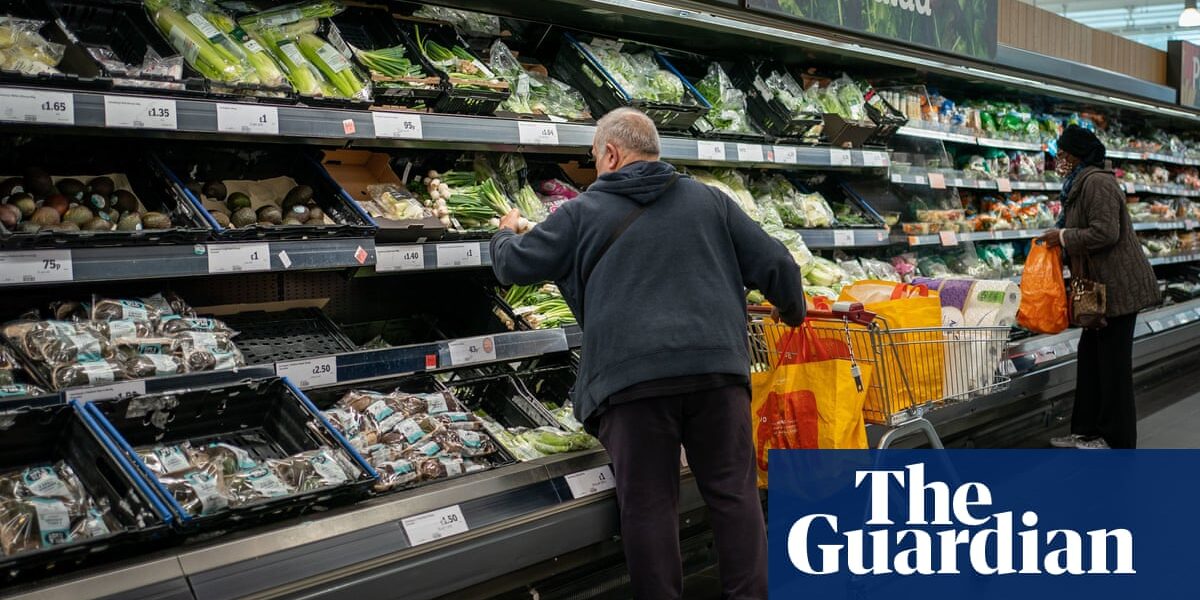British farmers express concern that stricter environmental regulations endanger their competitiveness in the market.

Farmers have expressed concern that stricter environmental regulations for British farmers, coupled with the importation of food that meets lower standards, could result in eco-friendly products becoming too expensive for consumers.
During the Oxford Farming Conference held on Thursday, Steve Barclay, the environment secretary, declared that the government would seek input on a fresh labeling system that would distinguish food made in accordance with UK regulations. This would give consumers the option to select food that is more eco-friendly.
Barclay has also declared an increase in new post-Brexit payments for environmentally-friendly farming, with the goal of incentivizing farmers to prioritize nature on their properties.
Yet, there is concern among farmers and retailers that implementing stricter environmental regulations in the UK while still importing from countries with less rigorous standards may lead to British farmers being outcompeted and forced to close their businesses, resulting in high-quality British food becoming a costly indulgence.
Joe Stanley, a farmer and leader of the Leicestershire division of the National Farmers’ Union, expressed his thoughts on the labelling policy, stating that it would be more thrilling if it was proposed by a government that did not prioritize sourcing the cheapest and most environmentally detrimental products from any available source in order to undermine UK farm standards since 2016.
Following Brexit, the government has made agreements with Australia, Mexico, and Canada, causing concern that meats such as pork and beef, which are produced with lower animal welfare and environmental standards, will be brought into the UK.
Ged Futter, a retail expert, wrote a report presented at the conference warning that inexpensive imports could harm sustainable British farms. The report emphasizes that some UK retailers believe there is an abundance of imported goods available, making it easy for them to replace a UK grower if needed.
In the previous year, the egg market in the UK experienced a collapse, resulting in an influx of Polish eggs. According to the growers mentioned in the report, the government did not provide adequate support in meeting environmental and net zero goals. This put us at a disadvantage compared to countries that offer cheaper food produced with lower standards.
James Robinson, a dairy farmer from Cumbria who manages a family-owned farm and serves as the chairman of the Nature Friendly Farming Network in England, expressed his frustration with the government’s approach.
He expressed his frustration and disappointment with the government’s broken promises. Despite Michael Gove’s assurance that trade deals would not harm farmers, the first deal did just that. However, this is not a justification for lowering our standards. The presence of cheaper products with lower standards should not lead us to compromise our own standards.
Ignore the advertisement for the newsletter.
after newsletter promotion
According to Robinson, farmers require assistance from retailers and the entire supply chain in order to avoid being outcompeted by lower quality imports.
The head of sustainability at Marks and Spencer, Lucinda Langton, expressed worry over farmers being unfairly outcompeted and stated that the company is implementing safeguards to ensure that imported food products meet the same standards as those in the UK.
Craig Bennett, the chief executive of the Wildlife Trusts, said: “We should not be allowing imports of foods that are produced to lower standards than the UK environmental standards. And it’s been incredibly disappointing how the government has broken their own promises on this issue over the last five years.”
Barclay declined to provide a statement regarding the matter of importing goods at lower prices than those produced by farmers. However, he did state that changes in labeling were a direct result of feedback received from the farming industry. He also mentioned a quick consultation process and the possibility of unintended consequences, but emphasized his main focus on empowering consumers.
Source: theguardian.com




